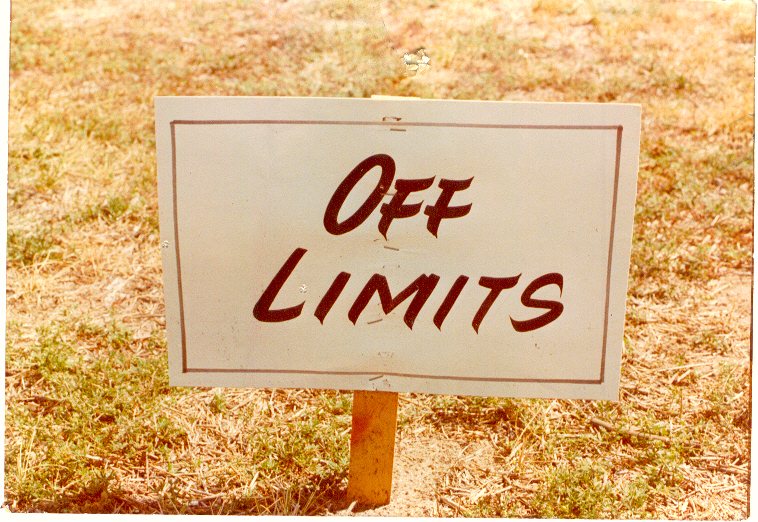
This is a point I would love to be making in a post rather than repeating it, but instead I want to prod the role of comedy in finding boundaries more generally. Comedy helps us find the absurd and the ridiculous and - done properly - see the humor even in situations that aren't themselves funny. So-called black comedies or gallows humor can be wonderful coping mechanisms for otherwise dire situations. Even gross-out comedy finds the boundary that demarcates "the disgusting" - though I doubt they often have so esoteric a goal as their primary mission. I'm not quite prepared to make cultural critics of these guys
The role comedy plays in figuring out where funny becomes macabre becomes simply disturbing exists in the very way we talk about jokes. What line exists between a joke that makes you smile but shake your head - maybe utter an "oh, man" - and one that darkens your face and has you simply say "too far?" Jokes that go "over the line" have not simply prodded the boundary between macabre/disturbing, silly/disgusting, sarcastic/cruel, coping/insensitive, but crossed it. Comedy and its close relative irony have the twin abilities to look at something from the outside (seeing its foibles more clearly) and to find out what boundaries construct the outside/inside distinction in the first place. One of English's greatest ironists, Jane Austen

is by no coincidence also one if its funniest. Austen was such a brilliant chronicler of her society precisely because she was able to see the boundaries of acceptable behavior from an ironic outsider's position. Though certainly a member of the culture, Austen didn't quite fit. A strong, single woman in a culture that told women to marry and demur, Austen clearly loved her characters, but to paraphrase Allan Bloom, one never feels that she envies them. Her perspective as a relative outsider is what stakes her ability to see the social boundaries she exploits to such hilarious comic effect.
Almost all of our greatest comedians are outsiders of one stripe or another, on the minority side of black/white, male/female, jew/gentile, poor/privileged, gay/straight. Think about it.




Often they're on the outside of more than one of those boundaries.
Forget about the legal aspects of obscenity for a minute, and think about the social reaction to George Carlin's "7 Dirty Words."In 1939, Clark Gable could raise eyebrows - even his immaculate ones -

just by saying "damn." This, obviously, no longer ruffles anyone's feathers. But even among the seven words Carlin highlighted, we don't treat all of them the same way we did when he first uttered them onstage. "Piss," for example, and "tits" don't carry the same shock value as they once did. Honestly, I was surprised to read in Bella's piece that you still can't say them on network TV. I mean, I wouldn't say them in front of my kid cousins (boundary) or to my parents (boundary), but most other places they won't phase anyone. Don't even have to say "earmuffs."

On the other hand, another of the seven words, a four-letter one starting with "c," I don't even really want to type. That one has retained the power to shock, to insult, to disrupt. I don't want to throw out a half-cocked theory as to why that is - happy to hear ideas, though - but just want to suggest that the difference in how we treat those two stems from boundaries that have shifted differently.
When we shift like that, comedy has to shift with it. By way of trying to put a neat bow on this post, let me just say that comedy and law share this in common. Each has a variable relationship with the informal rules and norms that make up our everyday, each is forced to shift its own boundaries when society shifts its. Comedy, though, has at least one big advantage. Law finds its tension with society in conflict: either political conflict or with arrests - say the several times George Carlin got arrested. Comedy, on the other hand, finds the tension with laughter. Most days, I'll take the latter.

















